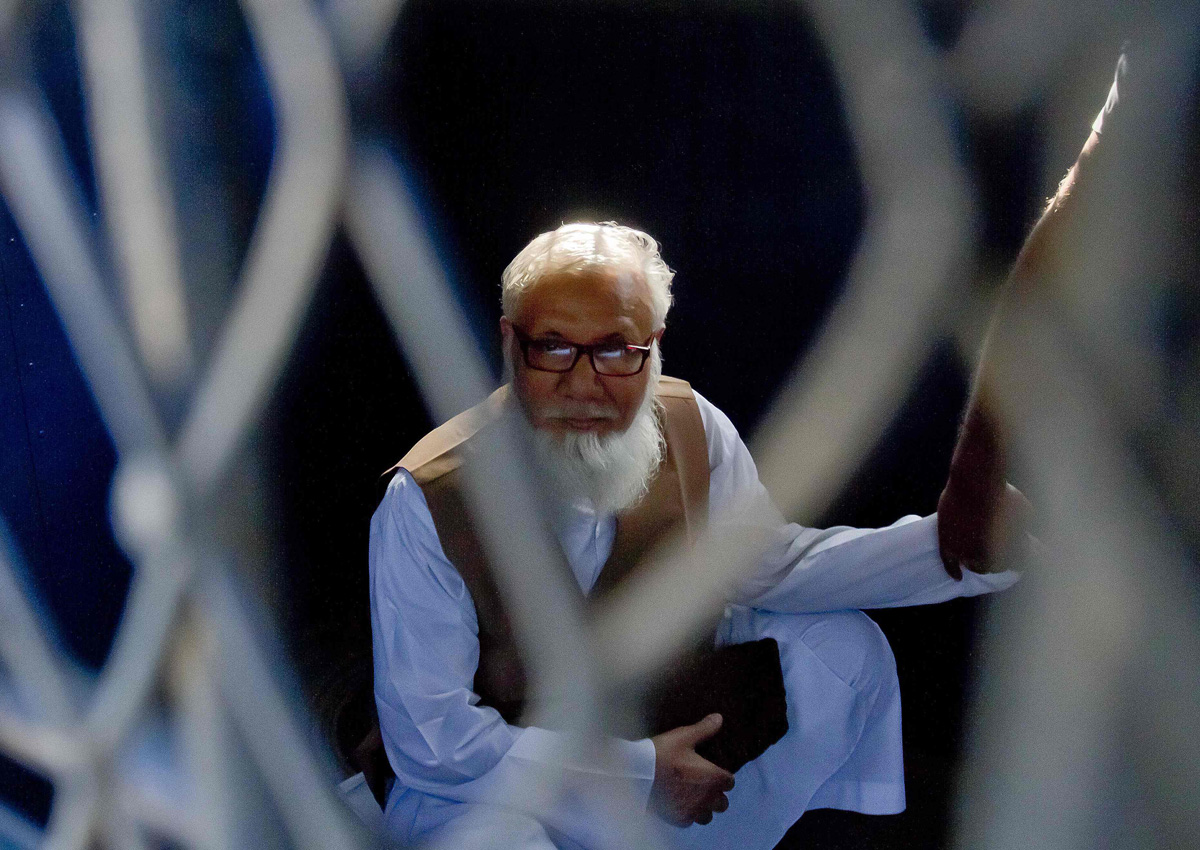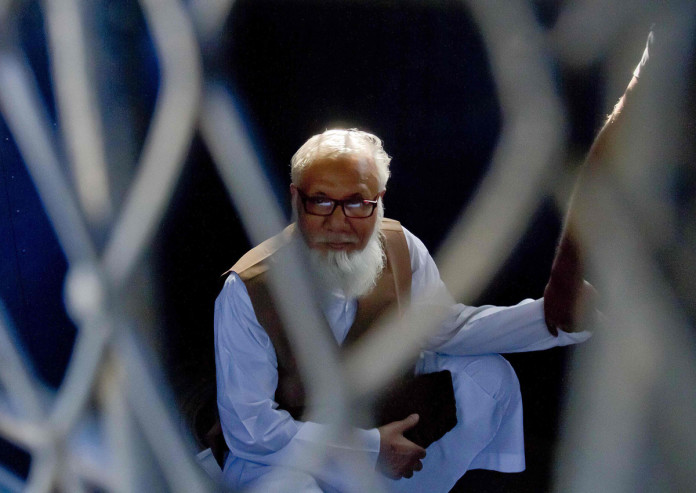The leader of Bangladesh’s top Islamist party Jamaat-e-Islami is set to hang within days after the Supreme Court on Thursday upheld his death sentence for war crimes.
Motiur Rahman Nizami was convicted of murder, rape and orchestrating the killing of intellectuals during the country’s 1971 independence struggle.
“We’re satisfied. Now there is no bar to execute him unless he seeks clemency from the president and the president pardons him,” Attorney General Mahbubey Alam told AFP after the Supreme Court dismissed Nizami’s final appeal.
A defence lawyer for the 73-year-old said he would not seek clemency and Alam said jail authorities would begin preparing for the execution once they received a copy of the verdict.
Security has been stepped up in Dhaka, already tense after a string of killings of secular and liberal activists and religious minorities by suspected Islamist militants.
Hundreds of people who had campaigned for the Islamist leaders to be tried for their roles in the 1971 war burst into impromptu celebrations at a square in central Dhaka and in the port city of Chittagong.
“Justice has finally prevailed. We hope the government will now execute him without wasting any time,” said Imran Sarker, a secular blogger.
Three senior Jamaat officials and a key leader of Bangladesh Nationalist Party (BNP), the main opposition party, have been executed since December 2013 for war crimes despite global criticism of their trials by a controversial tribunal.
Jamaat said the charges against Nizami were false and aimed at eliminating the leadership of the party, a key ally of the opposition BNP.
Nizami took over as party leader in 2000 and was a minister in the Islamist-allied government of 2001-2006.
Prosecutors said he was responsible for setting up the Al-Badr pro-Pakistani militia, which killed top writers, doctors and journalists in the most gruesome chapter of the 1971 conflict.
Their bodies were found blindfolded with their hands tied and dumped in a marsh on the outskirts of the capital.
Prosecutors said Nizami ordered the killings, designed to “intellectually cripple” the fledgling nation.
The 1971 conflict, one of the bloodiest in world history, led to the creation of an independent Bangladesh from what was then East Pakistan.
Nizami was convicted in October 2014 by the International Crimes Tribunal, which was established in 2010 by Prime Minister Sheikh Hasina’s government and has sentenced more than a dozen opposition leaders for war crimes.
Rights groups say the trials fall short of global standards and lack international oversight and Jamaat and the BNP have accused Hasina of using them to silence her opponents.
Her government says the trials are needed to heal the wounds of the conflict.
In 2013 the convictions of Jamaat officials triggered the country’s deadliest violence in decades, with around 500 people killed, mainly in clashes between Islamists and police.
Jamaat has called a nationwide strike for Sunday to protest the Supreme Court’s decision.






